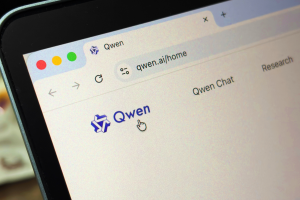The Growing Concern Over AI Development

Americans are known for their diverse opinions, but the subject of artificial intelligence (AI) is forming an unusual consensus. Many Americans believe that AI companies should hit the brakes on rapid advancements. This sentiment is rooted in a variety of concerns, ranging from ethical implications to economic risks.
Meanwhile, tech executives argue that slowing down could allow other nations to surge ahead in the AI race. These conflicting views create a complex landscape, where the speed of AI progress is both a source of national pride and anxiety. As AI continues to intertwine with daily life, the debate over its regulation and ethical use amplifies, revealing a society at a crossroads.
The Issue of ‘AI Washing’
‘AI washing’ is a problematic tactic where companies label their products as AI-driven for added allure, regardless of the actual use of AI technology. Major tech firms and even startups are accused of exploiting this trend, sometimes adding minimal AI features to justify the label. The term ‘AI washing’ refers to this misleading practice.
A significant part of the confusion stems from the lack of a universally accepted definition of AI. Simple algorithms that have been around since the 1950s could be considered AI by some scientists. However, these older systems differ significantly from modern models like OpenAI’s GPT, which can generate new content and perform a wide variety of tasks.
The main issue with AI washing is that it misleads customers and investors. Companies pay a premium for what they believe are advanced AI tools, only to receive subpar products. This can result in significant financial losses and erode trust in the AI industry. For instance, Amazon was accused of using human operators for tasks its ‘AI’ was supposed to handle.
Regulatory Actions and Risks
Regulators are taking steps to crack down on AI washing. The Securities and Exchange Commission (SEC) has charged firms with falsely marketing AI capabilities. This regulatory action aims to protect consumers and investors from being misled about the efficacy of AI products.
The European investment fund OpenOcean estimates that a third of new startups will cite AI in their pitches by the end of the year. While many of these claims may be genuine, the prevalence of AI washing highlights the need for scrutiny. Investors are becoming wary, and genuine AI innovations could miss out on much-needed support.
How Americans Feel About AI Regulations
A study by the AI Policy Institute found that 75% of American voters from both major parties support slowing down the development of powerful AI systems. This sentiment spans across political divides, showing a rare consensus among Americans.
However, AI executives argue that slowing down is not an option. They cite rapid advancements in countries like China as a reason for the U.S. to maintain its pace. These executives believe that falling behind, even temporarily, could lead to a significant competitive disadvantage.
Global Competition in AI Development
The World AI Conference in Shanghai revealed significant advancements by Chinese AI companies like SenseTime and iFlytek. These companies have developed AI models that reportedly match or exceed the capabilities of GPT-4, showing that U.S. sanctions have not hindered their progress.
A recent study indicates that 83% of Chinese businesses have adopted generative AI, compared to 70% in the UK and 65% in the U.S. This rapid adoption rate in China adds to the pressure on the U.S. to keep up in the AI race.
Despite the fear of falling behind, the majority of Americans still believe that the risks associated with rapid AI development outweigh the benefits. Only 23% are in favor of rushing to achieve a significant lead over China in AI technology.
New AI Tools Boosting Productivity
Several new AI tools are emerging to boost productivity across various sectors. These tools include Hume, a voice AI designed to respond empathetically, and Move AI, which assists in coordinating and paying vendors for relocations. Other tools like Moshi and Krut AI offer conversational and branding solutions, respectively.
Mindpal is another notable AI tool that can learn the context of a user’s work and perform tasks as needed. These innovations showcase the practical benefits of AI when properly utilized, highlighting the importance of genuine development over hype.
Cautionary Tales and Future Outlook
Not all AI advancements are without risk. For instance, new AI-powered vending machines that dispense ammunition have raised security concerns. Experts warn that these machines, which use facial recognition, could be vulnerable to hacking.
As AI technology continues to evolve, so does the importance of regulation and ethical considerations. Ensuring that AI is used responsibly and effectively will be crucial in gaining public trust and maximizing its benefits.
In conclusion, the call for transparency in AI is more urgent than ever. As regulatory scrutiny increases, the hope is that genuine advancements will receive the support they deserve. The rapid pace of AI development invites both innovation and caution, ensuring that technology benefits society while mitigating risks.
The American public’s growing consensus on the need for prudent AI development highlights a rare unity in addressing this critical issue. As the world races to harness the power of AI, balancing progress with ethical considerations remains paramount.






